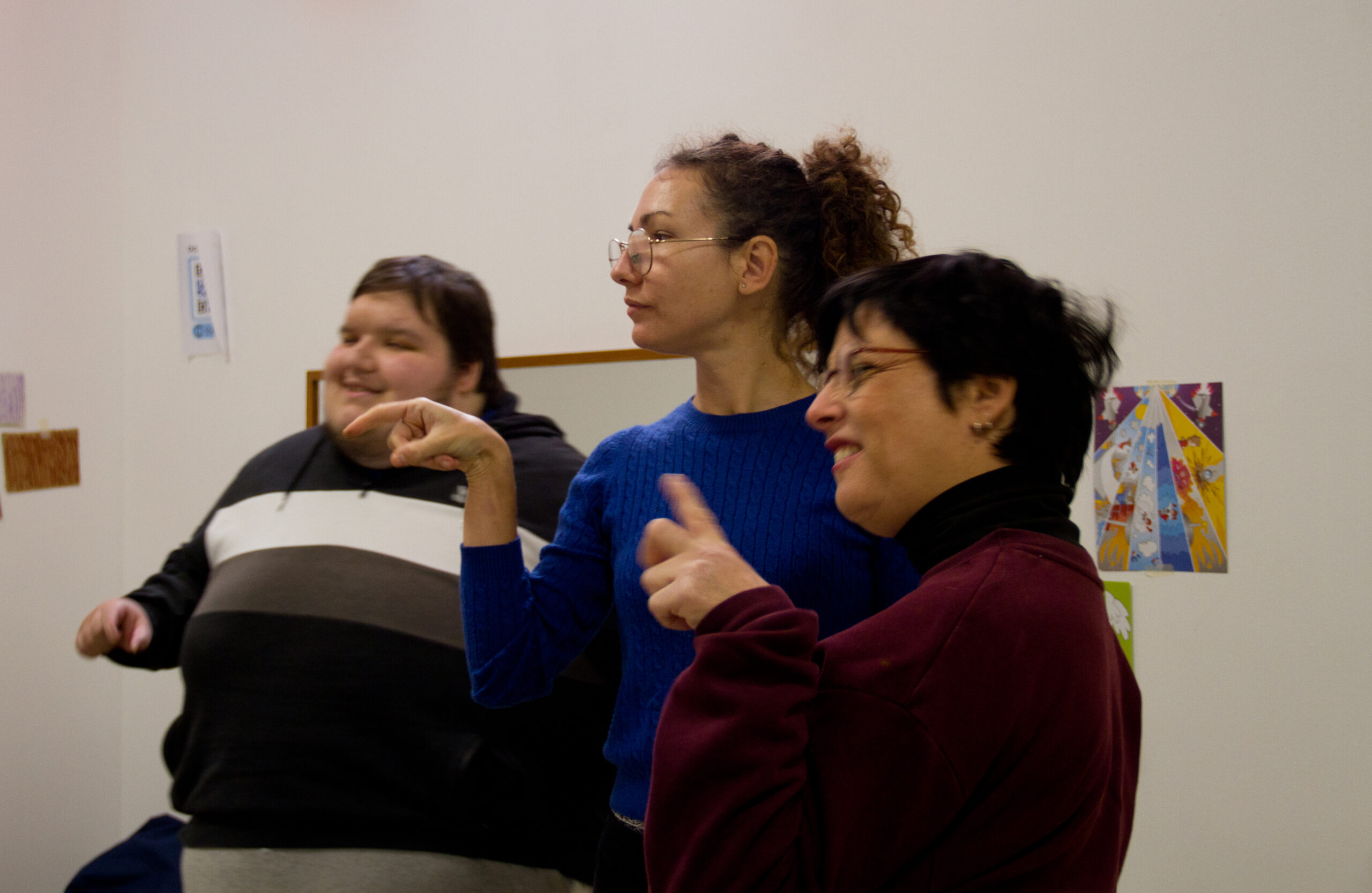Working with people with intellectual disabilities in creative contexts requires something beyond artistic skills—it requires presence, authenticity, and a deep respect for human diversity. At GAIA Academy, art mentor Pia Græsbøll Ottesen brings just that.

Since 2000, Pia has worked as both an artist and mentor, developing inclusive art spaces where creativity becomes a shared language. Her journey began long before her professional career.
“Since my early childhood, it has been normal for people of different cultural backgrounds, from different social strata, and with disabilities of different kinds to be present in our home,” she says. “It was an upbringing where there was no shielding from society’s differences.”
This inclusive foundation continues to shape her approach today.
Art as Reciprocity
For Pia, art isn’t just an activity—it’s a way of connecting as human beings. “Whether it’s people with or without disabilities, my approach is the same. Art reflects the human being,” she explains. “It’s about being authentic, open-minded, and seeing the person who is practicing their art. At the heart of it is reciprocity: giving something of yourself that others can use in their own work.”
She also emphasizes the importance of sincerity. “You are working with a group of people who immediately see through if you are not authentic and sincere. It is important to speak to the human being, as a human being.”
Supporting Creativity with Careful Guidance
One of the core challenges in art mentorship is striking the balance between offering guidance and allowing creative autonomy. For Pia, it comes down to a collaborative mindset. “I’m quite solution-oriented,” she says. “I don’t see problems as something that needs to be overcome, but solved—together.”
Whether it’s adjusting materials or finding adaptive tools, Pia always meets the artist where they are. “For example, which brushes work if the arms do not function and the brush must be held in the mouth? If an artist has minimal strength in their hands, how do we find a tool that can leave the desired structure in the clay?”
These aren’t just practical questions—they’re philosophical ones about dignity and agency in the creative process.
Tools, Taste, and Tigers
When asked what resources and tools have been most helpful in her work, Pia doesn’t list specific materials. Instead, she points to mindset.
“Pippi Longstocking’s and the Tiger Animal’s philosophy,” she says with a smile. That is, approach the world with boldness, curiosity, and a refusal to be limited by others’ expectations.
Equally important is leaving your personal taste at the door. “I try to keep my own style out of the guidance. I come with a sincere interest in their work and guide from there, based on their wishes and goals.”
Start with Yourself
Pia’s advice to professional artists who want to mentor individuals with intellectual disabilities is both clear and deeply reflective.
“Start by asking yourself: Why do you want to guide this group under the common denominator of art? Then ask: Can you see yourself on an equal footing with them?” She believes in a shared artistic universe where all parties can learn from each other—even if they take different paths to reach their creative goals.
What should mentors know before they begin? “That there is no difference between intellectually disabled people and oneself,” Pia states. “Everyone has different thoughts and perceptions, but there is a reason for that difference—and value in it.”
Room for Growth: A Call for Inclusion and Well-being
When asked about gaps in the field, Pia points to something fundamental: well-being. “It requires professional development, education, and well-being to become ready for life—for both the intellectually disabled and the so-called ‘normal’ person. Maybe it’s the well-being that’s most important for the whole person, and what we all have in common.”
In Pia’s world, success starts with self-esteem, nurtured from a young age. “If your self-esteem is fed from childhood and you thrive, adult life may succeed without too many fluctuations.”
Through her work, Pia reminds us that mentorship is not about directing—it’s about listening, adapting, and being present. The art that emerges is often beautiful, but the deeper beauty lies in the shared humanity that takes shape in the process.
At GAIA Academy, art is not just a medium—it’s a mirror, a bridge, and sometimes, a quiet revolution.



